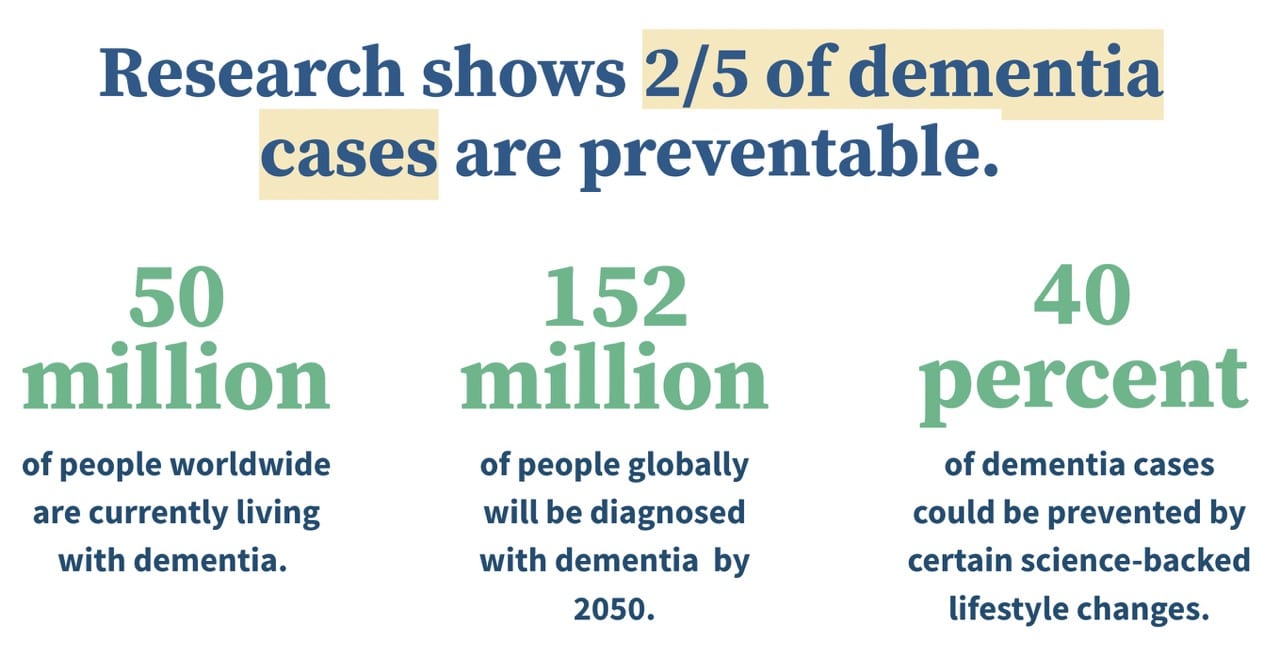Research shows many Americans are concerned about living with dementia down the line. But many aren't up to speed on the science-backed factors that help reduce dementia risk.
Americans are deeply worried about developing dementia, yet few have taken scientifically-proven preventative steps to protect their brains, according to a new report.
More than half of the respondents of a survey of people aged 50 to 64 told researchers that they were very or somewhat likely to develop dementia. But only 5 percent of respondents had talked to their doctor about their fears, and approximately 40 percent used unproven supplements like fish oil. A research letter about the findings was published in JAMA Neurology.
“There is growing evidence that adults in mid-life can take steps to lower their risk of dementia, including increasing physical activity and controlling health conditions like hypertension and diabetes,” said Donovan Maust of the University of Michigan’s Institute for Healthcare Policy and Innovation.
“Unfortunately, our findings suggest that people may not be aware of this and are not asking their doctor,” Maust said in a news release.
The letter published today came from a detailed analysis of responses from approximately 1,000 people who were queried as part of the National Poll on Healthy Aging, which was taken by the University of Michigan and the AARP.
The survey also found that people who should be most concerned about developing dementia are actually less concerned about the possibility.
For example, scientists have found that African Americans and Latinos are about twice as likely to develop dementia than whites. But in the poll, African Americans and Latinos said they did not consider themselves more at risk for disease than than the white population.
In fact, African-Americans said they believed they were significantly less likely to develop dementia than other groups.
The poll results also noted that middle-aged people with conditions such as diabetes, high blood pressure and heart disease are more likely to develop dementia than those in good health. However, poll respondents who reported their physical health as just fair or poor did not judge their risk of dementia to be higher than their healthier peers.
Maust recommended that physicians and public health authorities should tell middle-aged adults that they can reduce their risk of developing Alzheimer’s through increasing physical activity and managing medical conditions such as diabetes or hypertension.
Perspectives: ‘How I First Knew Something Was
Wrong:’ An Oral History of Early Dementia
One recent study, conducted by researchers at Korea University Guro Hospital and published in Obesity, found that abdominal obesity—or a larger waist size—was associated with a greatly increased risk of developing dementia.
And researchers at the Alzheimer’s Prevention Clinic at New York-Presbyterian and Weill Cornell Medicine said recently that a series of lifestyle changes and medical interventions can slow cognitive decline from Alzheimer’s or other neurodegenerative diseases.
In an interview, center director Richard Isaacson said that “people with a family history of Alzheimer’s disease should no longer feel helpless.”
“While there is no magic bullet,” Isaacson added, “we believe that one out of every three cases of Alzheimer’s may be preventable.”







